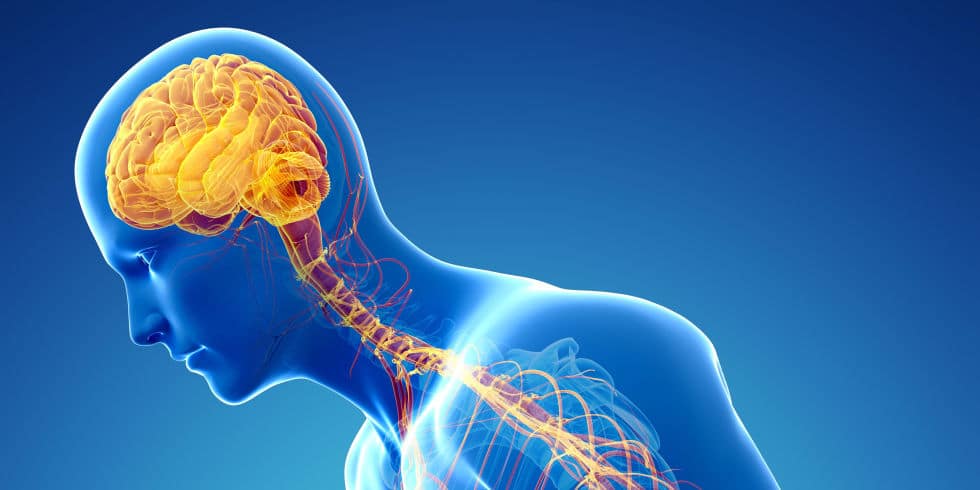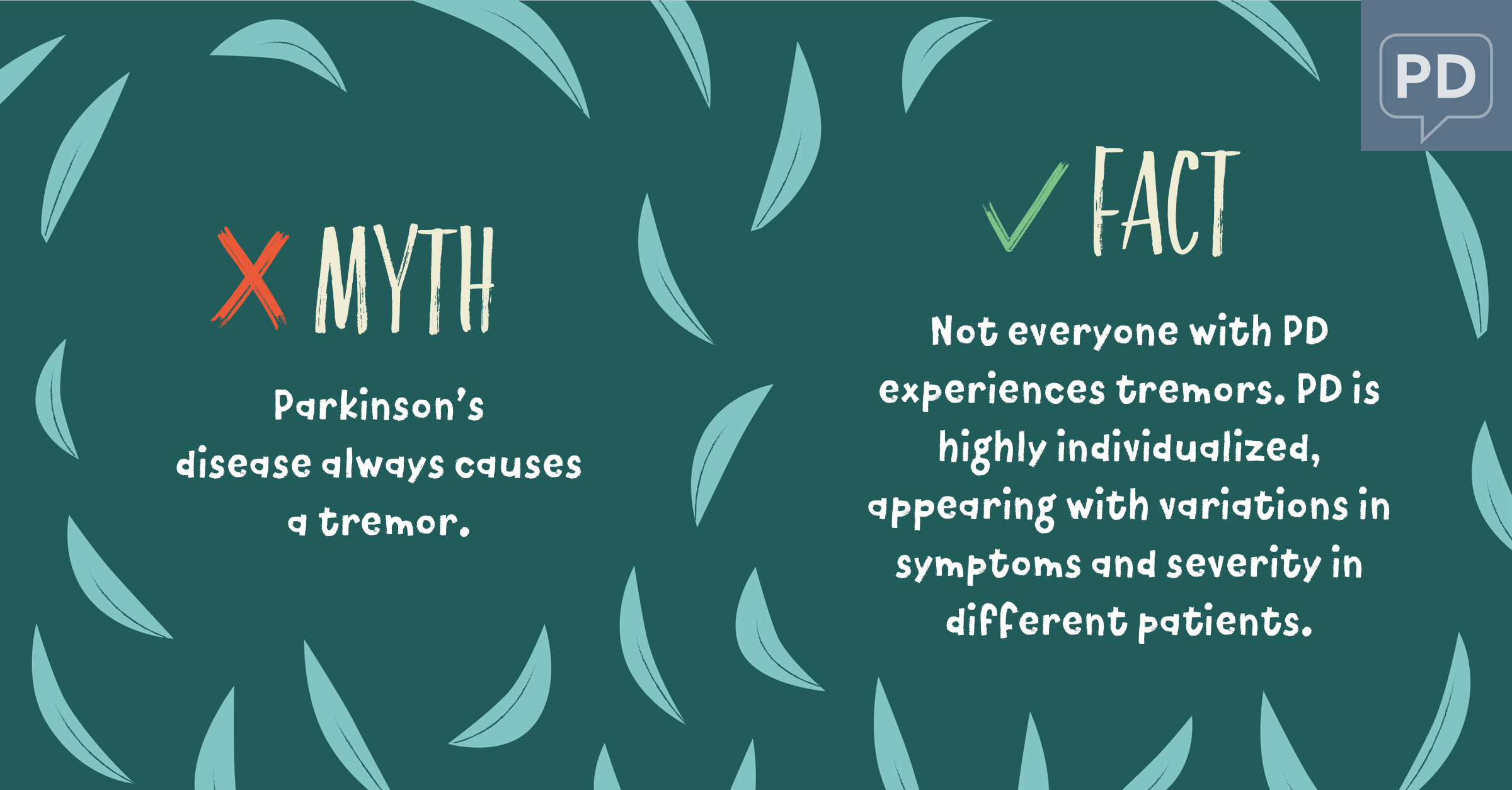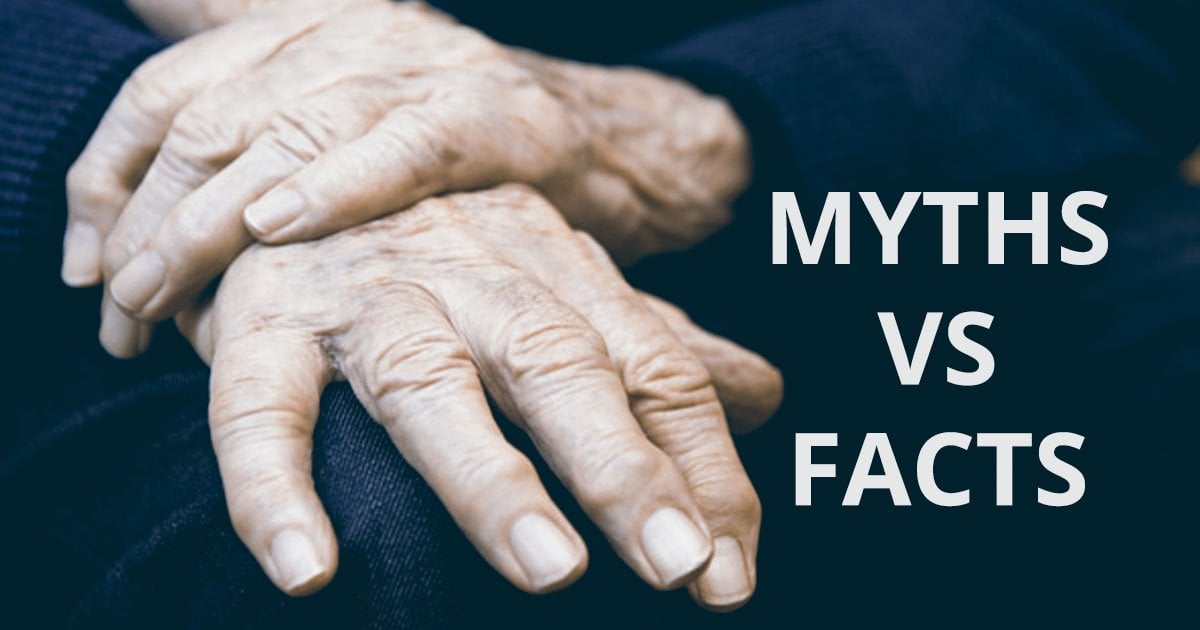Having Parkinsons Disease Is A Death Sentence
However, with the constant supervision of a competent medical team, as well as with regular exercise and physical therapy, you can avoid these and may even exceed the average life expectancy of people with Parkinsons disease, which ranges between 10 and 20 years following diagnosis.
Undoubtedly, struggling with Parkinsons disease, regardless of the treatment options available, is not easy, and, ideally, people with this brain disorder should have a strong support system. The involvement of both medical professionals and family members is essential for increasing the quality of life of individuals with Parkinsons disease.
Last but not least, Parkinsons disease patients should try to maintain a positive attitude and be as active as possible despite the bothersome symptoms they experience, as we cannot stress enough the importance of being physically active if you have this brain disorder.
Myth #: Substantia Nigra Pars Compacta Is The Only Part Of The Brain Affected By Parkinsons Disease
Most people associate Parkinsons disease with tremors, which is a very common symptom of the disease. Tremors are caused by the damage to the neurons located in the substantia nigra pars compacta. Damage to this region of the brain brings about the motor symptoms of Parkinsons disease like tremors and rigidity. However, Parkinsons disease also damages other regions of the brain causing assorted motor, affective, cognitive, autonomic and sensory impairments.
Myth: Tremors Always Mean Parkinsons
Experiencing tremors can be upsetting. However, theres a difference between tremors and Parkinsons disease. Parkinsons symptoms are also likely to include balance problems, slowness of movement, and problems with memory.
Developing a tremor doesnt always point to a Parkinsons diagnosis. The most common condition to cause shaking of the hands and arms is essential tremor but it is not linked to Parkinsons. Symptoms can get worse over time but are manageable.
What causes Parkinsons?
Parkinsons develops when the brain cells that produce the chemical dopamine begin to die. Exactly why these cells die is unclear, but its believed age, genetics, and environmental factors can play a part.
Some people worry conditions like coeliac disease and epilepsy can cause Parkinsons disease. However, researchers are yet to find proof of this.
A severe, mild or silent stroke can prevent enough blood from getting to the brain, leading to a condition Vascular Parkinsonism, which belongs to the family of different movement conditions that includes Parkinsons disease. While both conditions share symptoms such as memory, movement and sleep problems, unlike Parkinsons Vascular Parkinsonism is not considered progressive.
Read Also: Weighted Silverware For Parkinson’s
People With Parkinsons Disease Only Have Their Motor Skills Affected
Although the medical community deems Parkinsons disease a motor disorder, it is essential to keep in mind that the majority of people who are going to develop it will first experience non-motor symptoms, such as cognitive impairment, depression and anxiety, dementia, apathy, bowel incontinence, pain, and sexual dysfunction.
People and the medical community should not overlook these symptoms, as they significantly contribute to severe disability, poor quality of life, and a short life expectancy. A sliver of hope is that most non-motor skills experienced by people with Parkinsons disease are treatable.
Myth #: Levodopa Causes Intolerable Side Effects For Many People

FACTS: Levodopa can have an array of side effects such as nausea, fatigue, dizziness, and hallucinations. However, with patience, you and your neurologist will likely be able to find a formulation and dose of levodopa that you will be tolerable and can help treat your PD symptoms successfully. Occasionally, your neurologist will need to prescribe an additional medication to treat a side effect from levodopa. Sometimes, anxiety over a possible inability to tolerate levodopa interferes with being able to tolerate the medication. In these cases, treating the underlying anxiety can be helpful.
Dyskinesias are a common side effect of levodopa. Like side effects of medications, dyskinesias exist on a spectrum. Some dyskinesias are very mild and can be barely noticed by the person with PD. Other side effects are severe and can cause imbalance or social embarrassment. In most cases, side effects are in the middle of the spectrum. Your neurologist will work together with you to find the formulation and dosing schedule of levodopa that minimizes dyskinesias. If this is not sufficient, medications to decrease dyskinesias can be prescribed as well.
Don’t Miss: Diseases Similar To Parkinsons
Myth : Medication Used To Treat Parkinsons Disease Is Dangerous It Worsens Symptoms And Leads To A Faster Progression Of The Disease
Many years ago, this was a common misconception that has been disproven by a large clinical trial. Although the myth has been debunked, some people still believe it is true. Levodopa, the main drug therapy used for Parkinsons disease, is a strong medication that helps manage motor symptoms. In the past, some people believed that it was somehow toxic and caused the disease to progress more quickly. This is not true. The clinical trial that studied the medication found that patients who took Levodopa had fewer symptoms. There is no cure for Parkinsons disease, but Levodopa is very successful in helping many patients manage the disease effectively.
The Importance Of Proper Parkinsons Care
For individuals with Parkinsons, there is no one-size-fits-all treatment plan, but there are multiple steps you and your loved one can take toward management. Having access to proper care can mean the difference between living in comfort or discomfort and retaining independence or becoming dependent.
At Walker Methodist, were committed to providing the best possible care to our Residents with Parkinsons disease. As a member of the Struthers Parkinsons Care Network, our staff receives training and education specific to Parkinsons disease. This means our dedicated staff is trained to recognize and understand the complex symptoms of Parkinsons disease. Along with awareness, our staff are armed with resources and support networks for individuals and families dealing with this disease.
Recommended Reading: Parkinson’s Double Vision
If A Person With Parkinsons Looks Good They Feel Good
We can never truly know the level of pain someone with Parkinsons is living with. Some days may be easier than others even when they may appear like they are feeling good. The Parkinsons Foundation indicatesmedications that people take for PD can wear off between doses. Symptoms fluctuate, and not all of them are visible.
The way that they appear at one moment may not reflect the way that they feel most of the time. Even if their medication can control tremors, those with nonmotor symptoms of PD still may not feel well even though appear well.
Myths About Parkinson’s Disease
30 May 13
One of the highest-achieving athletes of the 20th century is boxing champion Muhammad Ali, but to Maryum Ali, he’s just dad.
As she has watched her father become one of the most famous faces of Parkinson’s disease since his diagnosis nearly 30 years ago, she has learned much about the realities of Parkinson’s, said Maryum. who is known to her family as May May.
Currently, about 1 million people in the U.S. have Parkinson’s, which results from a loss of the brain cells that produce the chemical dopamine. The condition causes tremors, rigid muscles and impaired balance.
In the early days of her father’s diagnosis, information about the condition was scarce. “Even doctors didnt understand it,” she told MyHealthNewsDaily.
But still today, myths about Parkinson’s persist.
“People think that it’s a disease of older people,” she said. While it’s true that the majority of people with Parkinson’s develop the condition around the age of 60, it is increasingly being diagnosed in younger people, she said.
About 10 percent of people with Parkinson’s are diagnosed before age 40, according to the National Parkinson Foundation.
Another myth, Ali said, is that there is not much that can be done to help a person with Parkinson’s. “There’s this, ‘it is what it is’ mindset out there,” she said.
People should know that there are effective ways to deal with the symptoms of Parkinson’s, she said. Exercise enormously helped her father, she said.
Also Check: Does Vitamin B12 Help Parkinson’s
The Only Effective Way To Keep Parkinsons Disease Under Control Is Medication
This could not be further from the truth. While taking your medication is crucial in keeping your Parkinsons disease symptoms under control, you can partake in numerous other activities meant to alleviate your symptoms and enhance your life quality. For instance, a recent medical study found that people with this brain disorder who engaged in weekly, hourlong exercise sessions could function considerably better in their daily life than those who did not.
In addition to physical activity, there are plenty of other alternative remedies you may want to try if you struggle with Parkinsons disease, such as taking nutritional supplements, but only with the approval of your doctor, practicing tai chi or yoga, going to massage sessions or acupuncture.
Fact: Other Conditions Can Be Mistaken For Parkinsons
Lyme disease is a common condition that people may mistake for Parkinsons. Caused by bacteria spread by ticks, it carries a huge range of symptoms including memory loss and shaking. With the right course of treatment these symptoms will usually be temporary.
There are other progressive conditions such as Dementia with Lewy Bodies and Parkinsonism that share very similar symptoms too, but dont worry, thanks to new diagnostic information a mistaken diagnosis is unlikely.
Remember, if youre worried about tremors or memory loss, its important to speak to your GP as soon as you can to ensure you get the right diagnosis and treatment.
Don’t Miss: Parkinson Bicycle Cleveland Clinic
Theres Nothing You Can Do To Control It Aside From Medication
Medication can be very effective in managing the symptoms of PD, however, there are other ways to manage Parkinsons. Making lifestyle changes can improve the quality of life. Regular exercise and a diet of fruits and vegetables that are high in antioxidants such as green and orange vegetables, nuts, raspberries and blueberries. Research has shown that there are benefits to regular exercise routines of walking, strength training, or Tai Chi, as well as noncontact boxing to improve mobility, balance, and coordination.
4. Parkinsons Disease Can Only Be Managed by a Neurologist
There have been multiple studies that have shown that most people living with PD dont need it to be managed regularly by a neurologist. A study published by researchers at Mayo Clinic found that primary care physicians can feel comfortable managing PD, especially if the patient brings their complete strategy plan, what is and is not working, their lifestyle choices. Many areas do not have a specialist so it is important to provide the physician will all details of the condition and what is and is not working. As mentioned before, each person is unique and treatment will be provided accordingly.
Everyone Experiences The Same Symptoms

One common myth is that everyone with Parkinsons disease will have the same symptoms and experiences. Yet, like with every disease and condition, each person experiences symptoms differently. The Michael J. Fox Foundation for Parkinsons Disease tells us that, for some people, tremor is the first symptom they experience, while others never see tremor or dont for many years.
Symptom severity and disease progression vary from person to person. Some people will have symptoms like slow movement and rigid muscles while others will not. If you have been diagnosed, your doctor should give you a sense of possible symptoms and how they can be best treated.
Read Also: Similar To Parkinsons
Myth: Tremor Is The Main Symptom Of Parkinsons
Fact: Its true that a resting tremor not related to stress, exercise fatigue, certain medication effects, or other traceable issues is a common early sign of Parkinsons disease .
But other early warning signs of PD, which is driven by declines in natural dopamine levels in the brain, include:
- Loss of smell
- Sleep disturbance
- Difficulty with balance
- Anxiety, depression, and other mood disorders
Many of these symptoms can be traced to other health issues. Effective treatment for PD requires an accurate diagnosis thats accomplished with a comprehensive physical and detailed neurological evaluation.
Myth #: Parkinsons Disease Is The Same For Everyone
Contrary to popular disease, Parkinsons disease can vary from one affected individual to the next. Everyone with Parkinsons disease experiences it a little differently. For some Parkinsons disease patients, tremors are the first symptom they experience while others dont get tremors for years. Gait and facial masking are relatively common in patients of Parkinsons disease but looking for a particular look to identify Parkinsons disease does not work because not everyone experiences them.
You May Like: Parkinson’s Hallucinations Commercial
Myth: Parkinsons Disease Is Curable
Although many of the motor symptoms can be alleviated with medication, currently, there is no cure for PD. Researchers continue to explore the causes of the disease in hopes that they can identify ways to stop or slow the progression of PD. Surgery is also an option for some patients to provide deep-brain stimulation, which involves the placement of electrodes in the brain to regulate abnormal brain impulses.3
People With Parkinsons Disease Experience Spontaneous Exacerbations
Another common myth about Parkinsons disease is that people who suffer from it often have exacerbations of their symptoms. The truth is that, even if symptoms can fluctuate throughout the day, the progression of this brain disorder is, in fact, very slow and does not entail flare-ups.
For this reason, if you notice a worsening in the symptoms of a person with Parkinsons disease, it is crucial for you to take them to a medical specialist who will look for underlying causes. Some underlying causes for symptoms exacerbations in patients with Parkinsons disease are certain medications such as antipsychotics, valproic acid, and lithium, sleep deprivation, stress, urinary tract infections, and dehydration.
Recommended Reading: What Foods Should Be Avoided When Taking Levodopa
Myth: You Cant Drive With Parkinsons Disease
Many people continue to drive with Parkinsons. Informing the DVLA or DVA of the diagnosis is the first step. Theyll send some forms to complete and may carry out a driving assessment.
Some drugs used to treat Parkinsons, such as Clonazepam, have side effects that can make it unsafe to drive. If you or someone you love would like to continue driving whilst receiving treatment for Parkinsons always talk to a GP to check if its safe to do so, as there may be alternative medication to try.
For those who struggle with walking the Blue Badge scheme allows you to park in special bays that are closer to amenities, as well as on single and double yellow lines. Steering aides and pedal adaptations can make cars more user friendly too.
Myth : Parkinsons Disease Only Affects Movement
The motor symptoms of Parkinsons disease, including shaking and tremor, rigid muscles, slowness of movement, and a frozen or flat expression are commonly known characteristics of the disease. However, Parkinsons disease can also cause other symptoms unrelated to movement. For some patients, the non-motor symptoms are actually more disabling than motor symptoms and should be discussed with a healthcare provider.
Non-motor symptoms include:
- Changes to speech
- Urinary incontinence
Read Also: Prayers For Parkinson’s Disease
History Of Myths About Parkinson’s Disease
In 1998, Michael J Fox shocked the world when he publicly announced that he has Parkinsons disease.
Even more shocking he had PD over the seven years before sharing the news publicly. Fox has been open about what he has been experiencing since receiving the diagnosis and become a patient advocate for curing PD.
Today, in this article we will discuss some common myths associated with Parkinsons disease.
Parkinsons Only Affects Movement

It is true that the medical community considers Parkinsons disease a motor disorder. However, people with the condition often also experience nonmotor symptoms, which can begin before the motor symptoms.
Nonmotor symptoms can include cognitive impairment or dementia, depression and anxiety, sleep dysfunction, pain, apathy, sexual dysfunction, and bowel incontinence.
People often overlook these symptoms, but they are important. As the authors of one paper on the topic explain:
onmotor symptoms dominate the clinical picture of advanced Parkinsons disease and contribute to severe disability, impaired quality of life, and shortened life expectancy.
effective drugs is levodopa, which the body converts into dopamine once it enters the brain.
There is a long standing myth that levodopa can only relieve symptoms for about 5 years before it stops working. This is a myth. Levodopa can be effective for decades. However, over time, its effectiveness might reduce.
Medical News Today spoke with James Beck, Senior Vice President and Chief Scientific Officer of the Parkinsons Foundation. He explained why levodopa becomes less potent:
One of the cruel ironies about Parkinsons disease is that the key enzyme that converts levodopa to dopamine is predominantly found in the dopamine neurons of the substantia nigra, which are lost during progression of the disease. So, the main way to make dopamine available to the Parkinsons brain declines as the disease advances.
You May Like: Parkinson’s Bike Therapy
Computer Models Predict The Progress Of The Disease
Our calculations indicate that cell death only affects the level of dopamine very late in the process, but that symptoms can arise long before the level of the neurotransmitter starts to decline. The reason for this is that the fluctuations that normally make up a signal become weaker. In the computer model, the brain compensates for the shortage of signals by creating additional dopamine receptors. This has a positive effect initially, but as cell death progresses further, the correct signal may almost disappear. At this stage, the compensation becomes so overwhelming that even small variations in the level of dopamine trigger the stop signal which can therefore cause the patient to develop the disease.
The new research findings may pave the way for earlier diagnosis of Parkinsons disease.